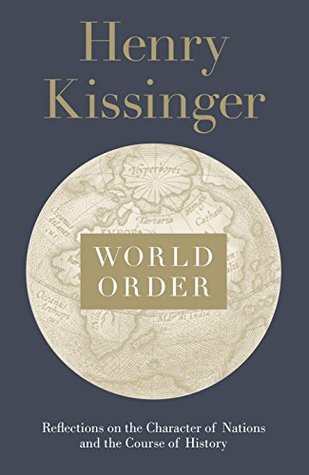More on this book
Community
Kindle Notes & Highlights
Kautilya
“We live in a wondrous time, in which the strong is weak because of his scruples and the weak grows strong because of his audacity.”
situation comparable to Bismarck’s when he made an alliance with Austria balanced by a treaty with Russia. Paradoxically,
Edmund Burke would recall to his colleagues that the colonists had exported “liberty according to English ideas” along with diverse dissenting religious sects constrained in Europe
I mean the Spirit of Religion and the Spirit of Freedom.”
It is impossible not to be sensible that we are acting for all mankind;
a city upon a hill.
Throughout the nineteenth century, the United States had the good fortune of being able to address its challenges sequentially, and frequently to the point of definitive resolution.
Restraint was much more the attribute of the aristocrats who negotiated at the Congress of Vienna, if only because they shared common values and experiences. Leaders who had been shaped by a domestic policy of balancing a multitude of pressure groups were arguably more attuned to the moods of the moment or to the dictates of national dignity than to abstract principles of the benefit of humanity.
By framing the issue of America’s world role as a test of moral perfection, it castigated itself—sometimes to profound
effect—for falling short.
“You pay the same price for doing something halfway as for doing it completely. So you might as well do it completely.”
For all the great and indispensable achievements the Internet has brought to our era, its emphasis is on the actual more than the contingent, on the factual rather than the conceptual, on values shaped by consensus rather than by introspection.
Where is the Life we have lost in living? Where is the wisdom we have lost in knowledge? Where is the knowledge we have lost in information?


